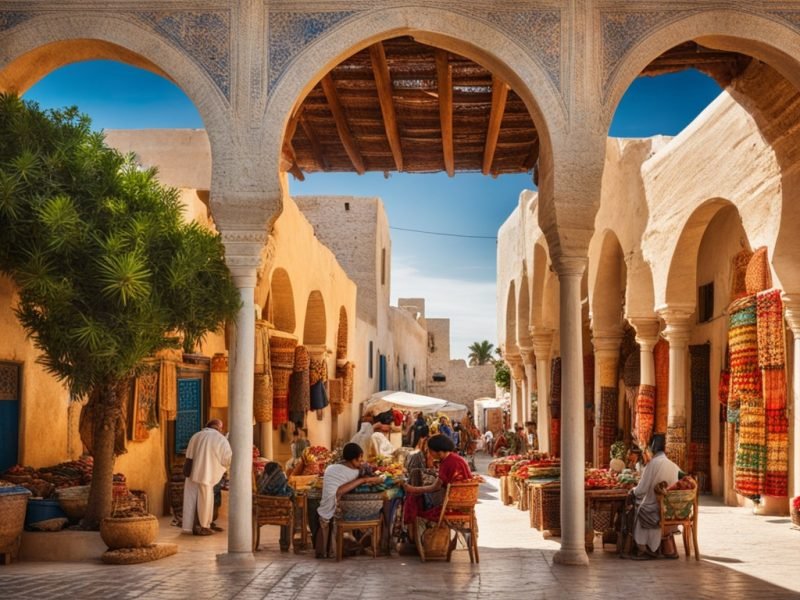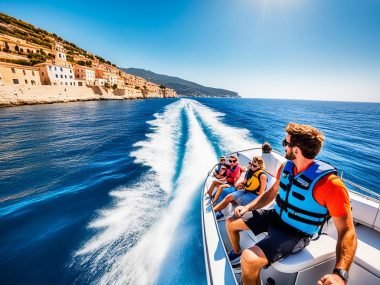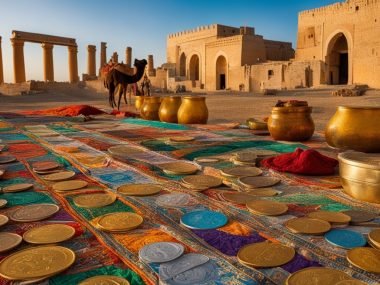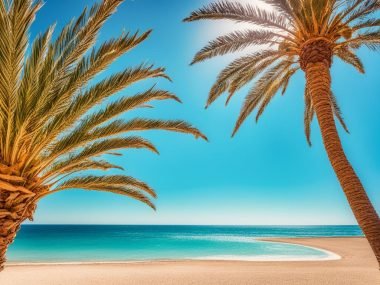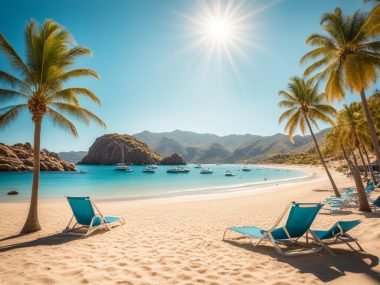In 2019, Tunisia welcomed more than 7.5 million tourists, showing its popularity. People often wonder about safety there. This country has a rich culture and warm Mediterranean vibe. Still, there are safety worries like regional conflicts and crimes against tourists.
Getting advice from the Foreign, Commonwealth & Development Office (FCDO) is key. Even with troubles in the Middle East, Tunisia is considered steady. But, being careful and having travel insurance is a must.
Even with these issues, the stunning views and historic sites in Tunisia keep bringing people. It’s vital to keep checking on travel safety there.
Key Takeaways
- Over 7.5 million tourists visited Tunisia in 2019, despite safety concerns.
- Factors including terrorism risks and regional security dynamics affect Tunisia holiday safety.
- FCDO advisories are crucial for staying informed about Tunisia travel security.
- Travel insurance is essential for a secure holiday in Tunisia.
- Despite geopolitical challenges, Tunisia’s cultural and natural allure continues to attract visitors.
Overview of Tunisia’s Current Safety Situation
If you’re thinking about going to Tunisia, it’s vital to know the latest travel advice. Being aware of this can help you make safe travel choices. Tunisia is on high alert, so keeping up with advice is key.
What Is the Current Travel Advisory for Tunisia?
The FCDO says to avoid places in Tunisia near Algeria and Libya. The worry is about terrorism and fights across borders. To stay safe, follow guidelines and stick to areas marked as safe.
Understanding the State of Emergency
Tunisia has been in a state of emergency since 2015. This action followed major terror attacks, aiming to keep people safe. It shows the efforts to protect everyone in Tunisia.
| Aspect | Current Status |
|---|---|
| Travel Advisory | Avoid high-risk zones near Algeria and Libya |
| State of Emergency | Ongoing since 2015 |
| Main Concerns | Terrorism, cross-border conflicts |
Regions to Avoid in Tunisia
Reading the latest updates is important for a safe trip to Tunisia. Knowing which places are risky makes visits safer and more fun.
Areas Near Algeria
Areas close to Algeria, especially the Chaambi Mountains, are very risky. The FCDO says not to go to Chaambi Mountains National Park or nearby military areas. These places have military actions and terrorist threats, posing a big risk to travellers.
Southern Tunisia Near Libya
In southern Tunisia, being near Libya brings its own issues. Places like El Borma and Dhehiba are in zones to avoid unless it’s absolutely necessary. These areas are touchy due to their closeness to Libya’s conflict zones, raising border safety worries.
Other Risk Zones
There are also other risky parts in Tunisia. The security situation is patchy, and some places can be dangerous due to local conflict or terrorist aims. Avoiding these advised no-go zones is key to a safe trip.
Terrorism Risks in Tunisia
In recent years, Tunisia has seen big challenges from terrorism. Many events show why solid travel security is vital, especially for tourists.
Recent Terrorist Incidents
There have been various assaults in Tunisia lately. These include stabbings, shootings, and a suicide bomb attack. They targeted security forces and tourist spots. These threats highlight why travelers must stay alert. The government is enhancing security to prevent more attacks. But, the threat of terrorism is always changing. This means you always need to be aware.
High-Risk Areas for Terrorism
High-risk zones in Tunisia include crowded places, government buildings, and key tourist sites. It’s important to know about these travel security steps before you visit. The local authorities are working hard to protect these areas. But, tourists should still watch their environment and look for updates on safety.
| Type of Incident | Recent Occurrences | Impact on Tourists |
|---|---|---|
| Stabbings | Two incidents in the past year | Increased caution around public gatherings |
| Shootings | One shooting targeting tourists | Heightened security in tourist hotspots |
| Suicide Bombing | Targeted security personnel and tourist areas | Enhanced security checks and measures |
Staying highly aware of your surroundings and following safety tips can really help in Tunisia. Always check travel advisories before going on a trip.
Crime in Tunisia: What To Know
Travelling to Tunisia is amazing. But, knowing the safety risks is key for a great holiday. Petty crime happens mainly in tourist and busy spots. This knowledge keeps visitors alert and safe.
Types of Crime Tourists Might Encounter
Most trips to Tunisia are trouble-free. Yet, tourists might face petty crime. I’ve seen pickpocketing, mugging, and bag-snatching in busy places. These crimes usually target tourists.
Criminals often use tricks. For example, someone might ask you a question. Meanwhile, their friend steals from you.
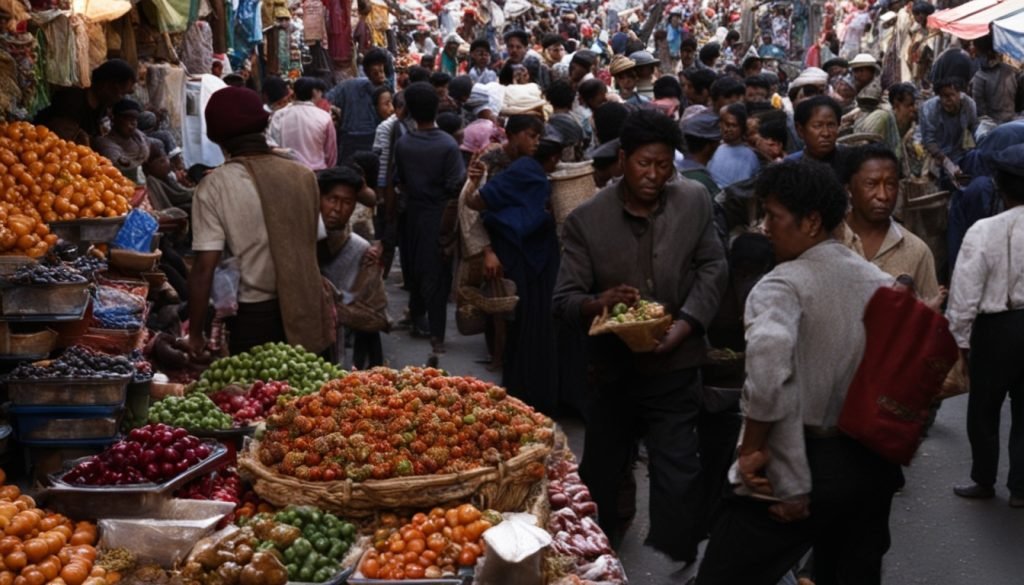
Preventative Measures for Tourists
To lower petty crime risks, don’t show off valuables. Keep jewellery, fancy cameras, and lots of money out of sight. Use hotel safes for important papers and passports. Also, be extra careful in crowded spots like markets and on buses.
Be careful when talking to strangers. Stay away from dark, empty places at night. Stick to busy, bright streets. These tips make travel in Tunisia safer. They also make you feel more confident and happy.
Safety Tips for Tunisia Vacation
When you plan a holiday in Tunisia, remember some key safety tips. These will help make your visit both fun and safe.
Travelling With Insurance
It’s important to get good insurance for traveling. Check it covers your whole trip and unexpected medical needs. This will keep you safe from big costs and give you peace of mind.
Staying Aware of Local Regulations
Learn about the local laws and ways to be respectful. Knowing Tunisia’s culture makes your trip better and helps you get along with locals.
Utilising Local and FCDO Resources
Use resources like the Foreign, Commonwealth & Development Office (FCDO travel advice) and embassy help. They give you the latest safety news and support if you need it. Having these resources available makes your holiday in Tunisia safer.
Health and Medical Care in Tunisia
When you travel in Tunisia, it’s good to know about health and medical care there. Cities have good private healthcare. But, medical care might not be what you expect in the countryside. So, getting health insurance that includes cover for flying you home if needed is wise.
Understanding healthcare in Tunisia can make your trip go well. It’s important to know where healthcare providers and pharmacies are. Here is a table of key healthcare places in cities and the countryside to help you plan.
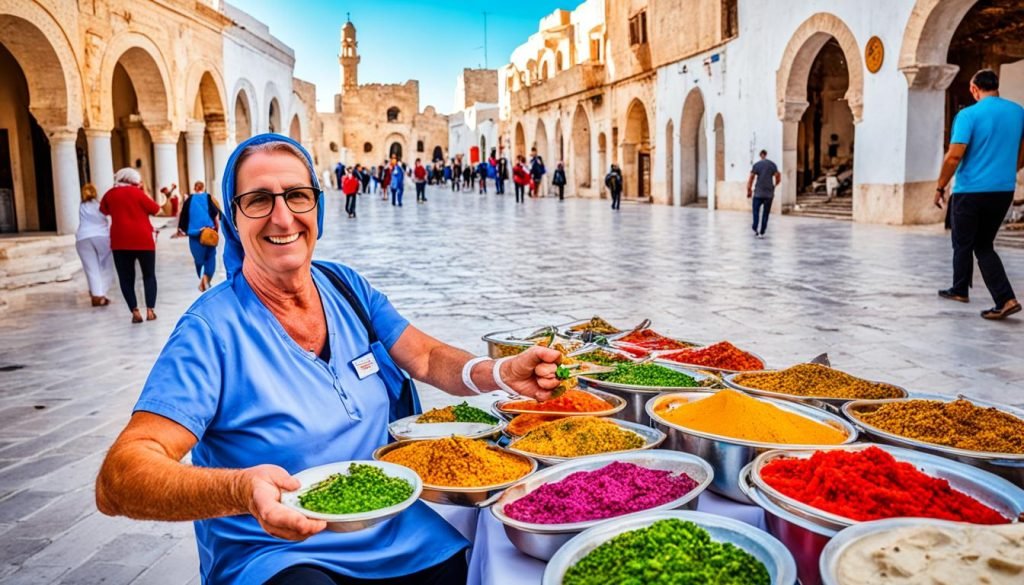
| Region | Type of Facility | Notes |
|---|---|---|
| Tunis | Private Hospitals | Offers excellent medical care for tourists, comparable to Western standards |
| Sousse | Clinics | Reasonable care available, suitable for minor health issues |
| Kairouan | Local Health Centres | Basic healthcare facilities, not recommended for serious conditions |
| Djerba | Private Clinics | Good standard of care, convenient for tourists |
| Remote Areas | Rural Clinics | Limited facilities, travel to urban centres recommended for better care |
With good research on Tunisia travel health advice, your visit can be safe and fun. Make sure your insurance covers all the places you’ll visit, especially remote ones.
Political and Social Climate
Tunisia is an important place for tourists to understand before visiting. Knowing about its society and recent events makes for a safer, fun trip. In the last years, peaceful protests have occurred. They can sometimes turn dangerous, mainly in cities and near government buildings.
Recent Political Unrest
Lately, protests have been common in Tunisia. They often stem from issues with money or political changes. While they start off peaceful, they can get violent. This happens when they clash with the police and disrupt cities.
Impact of Protests on Tourism
Social unrest affects tourism in Tunisia a lot. Protests can close roads, disrupt buses and trains, and block areas. These issues stop tourists from exploring freely. So, knowing about these impacts is key for safe travels.
Tips for Avoiding Protests
Here are tips to help avoid protests in Tunisia:
- Stay informed: Regularly check local news and FCDO updates about potential or ongoing demonstrations.
- Avoid protest areas: Steer clear of government buildings, city centres, and other hotspots known for gatherings.
- Respecting cultural differences: Blend in by respecting local customs and avoiding behaviour that may be perceived as provocative.
- Stay cautious during national events: Exercise extra caution during elections, public holidays, or periods of national significance when protests are more likely.
Knowing about Tunisia’s political situation and respecting cultural differences helps travellers. It reduces risks and makes their holiday more enjoyable.
Travel Restrictions and Entry Requirements
Planning a holiday to Tunisia means knowing about travel rules and what you need to enter. It’s important to stay informed. This helps make your entry smooth.
Passport and Visa Requirements
UK nationals don’t need a visa for visits up to 90 days. But, your passport must be valid for your whole stay. Make sure your travel documents are current. They must meet Tunisia’s entry rules. If you plan to stay longer or do different activities, check the visa rules. This avoids travel issues and keeps you legal.
COVID-19 Entry Measures
Tunisia has COVID-19 rules for visitors because of the global pandemic. Before you go, check the latest travel advice. The rules can change quickly. You might need a negative COVID test, fill out health forms, or quarantine when you arrive. Get info from reliable sources. This keeps you and others safe and makes your trip better.

